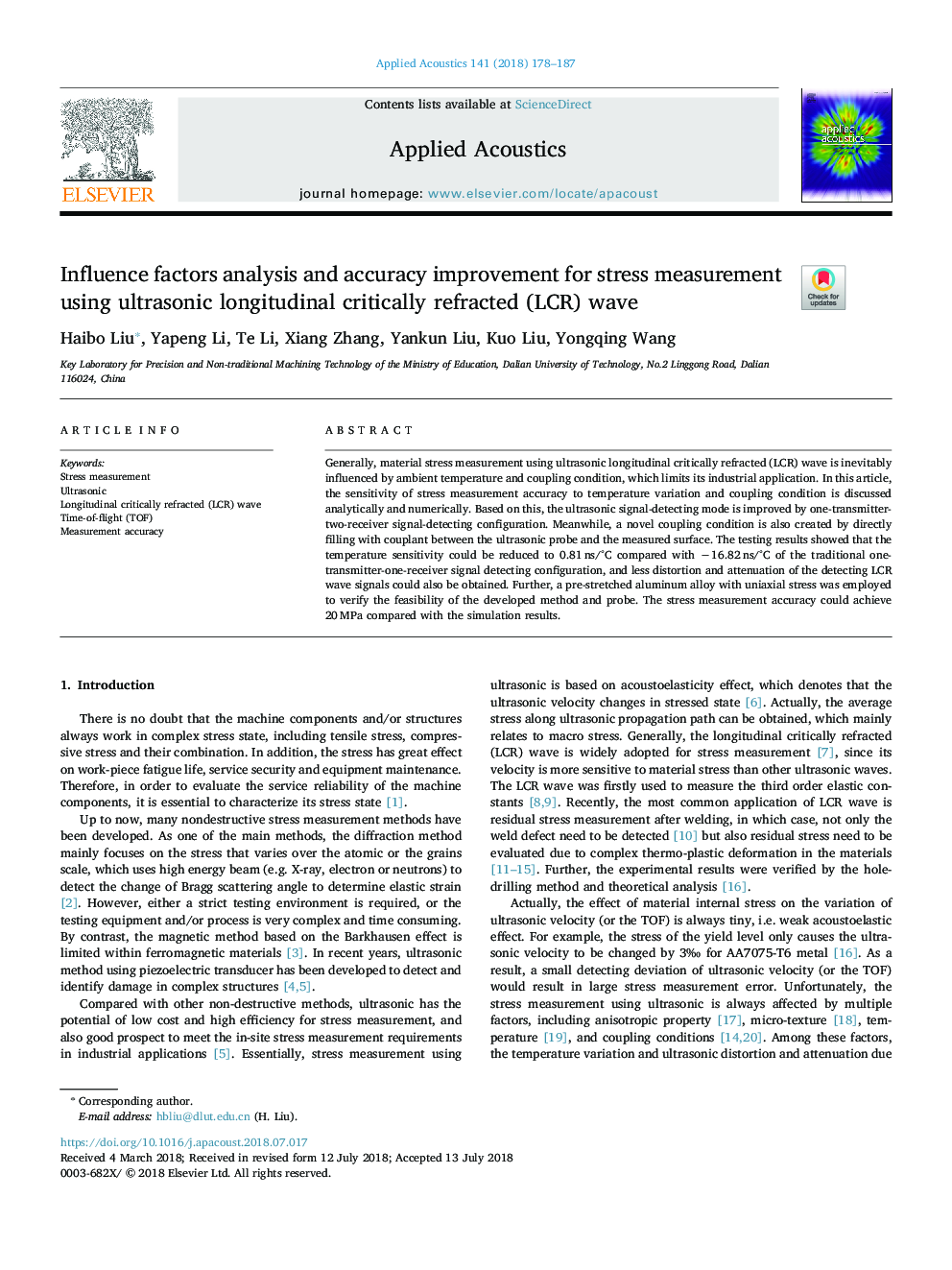| Article ID | Journal | Published Year | Pages | File Type |
|---|---|---|---|---|
| 7152008 | Applied Acoustics | 2018 | 10 Pages |
Abstract
Generally, material stress measurement using ultrasonic longitudinal critically refracted (LCR) wave is inevitably influenced by ambient temperature and coupling condition, which limits its industrial application. In this article, the sensitivity of stress measurement accuracy to temperature variation and coupling condition is discussed analytically and numerically. Based on this, the ultrasonic signal-detecting mode is improved by one-transmitter-two-receiver signal-detecting configuration. Meanwhile, a novel coupling condition is also created by directly filling with couplant between the ultrasonic probe and the measured surface. The testing results showed that the temperature sensitivity could be reduced to 0.81â¯ns/°C compared with â16.82â¯ns/°C of the traditional one-transmitter-one-receiver signal detecting configuration, and less distortion and attenuation of the detecting LCR wave signals could also be obtained. Further, a pre-stretched aluminum alloy with uniaxial stress was employed to verify the feasibility of the developed method and probe. The stress measurement accuracy could achieve 20â¯MPa compared with the simulation results.
Related Topics
Physical Sciences and Engineering
Engineering
Mechanical Engineering
Authors
Haibo Liu, Yapeng Li, Te Li, Xiang Zhang, Yankun Liu, Kuo Liu, Yongqing Wang,
